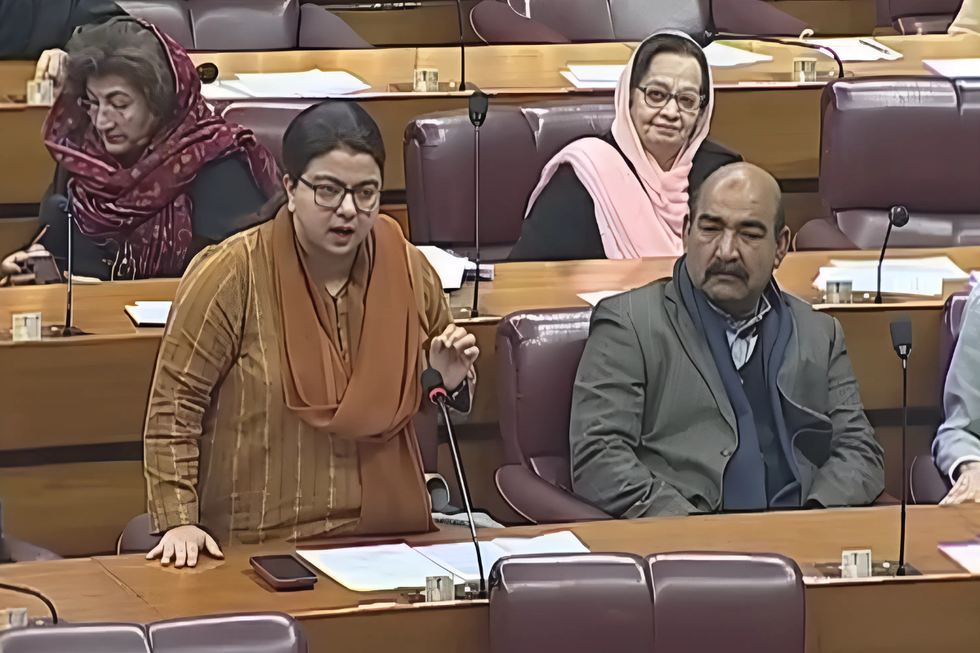Pakistan internet woes linked to VPN usage and cable capacity, says regulator's 'investigative report'
VPN traffic hit 815 gigabits per second peak in October 2024

Javed Hussain
Correspondent
I have almost 20 years of experience in print, radio, and TV media. I started my career with "Daily Jang" after which I got the opportunity to work in FM 103, Radio Pakistan, News One, Ab Tak News, Dawn News TV, Dunya News, 92 News and regional channels Rohi TV, Apna Channel and Sach TV where I worked and gained experience in different areas of all three mediums. My journey from reporting to news anchor in these organisations was excellent. Now, I am working as a correspondent with Nukta in Islamabad, where I get the opportunity of in-depth journalism and storytelling while I am now covering parliamentary affairs, politics, and technology.

CDNs provide 70% of Pakistan's internet service, but VPN usage bypasses local servers
Each megabyte of VPN traffic costs approximately one dollar in foreign exchange
Current submarine cable capacity of 9.5 Tbps deemed insufficient for country's needs
Internet users across Pakistan faced widespread service disruptions and slow speeds throughout 2024, with a Pakistan Telecommunication Authority (PTA) investigation attributing the problems to inadequate submarine cable capacity and widespread use of virtual private networks (VPNs) to bypass content delivery networks.
The investigation revealed that Content Delivery Networks provide 70% of Pakistan's internet service. These networks, known as CDNs, are systems of servers placed worldwide to deliver web content more quickly by serving users from locations closest to them. The authority claims that growing VPN usage forces traffic to route directly through servers outside the country, bypassing local CDNs. This creates bottlenecks during peak hours and further degrades connection speeds nationwide.
Meanwhile, the authority reports Pakistan's submarine cable capacity stands at 9.5 Tbps, which it says is insufficient to meet current demands.
VPN usage 'strains infrastructure'
The report warns that rising VPN usage strains Pakistan's internet infrastructure by bypassing local servers and routing traffic internationally. This not only degrades service but also drains foreign exchange reserves. Each megabyte of VPN traffic costs approximately one dollar, with data transfers of one terabyte per second costing $10,000 per minute in foreign currency.
The report tracked peak VPN bandwidth usage throughout late 2024: 634 gigabits per second in August, 597 in September, and reaching a high of 815 in October. Usage then declined to 378 gigabits per second in November. By December 22, as internet service improved, VPN traffic stabilized at 437 gigabits per second, returning to what officials describe as normal levels.
The telecommunications authority has begun licensing VPN providers, with two companies — ZETTABYTE and ALPHA3CUBIC — already applying for regulatory approval.
Telecom providers report disruptions
The authority surveyed telecom providers about service disruptions. Mobile operators Jazz and Telenor reported that while X (formerly Twitter) was blocked, general web browsing and other social media platforms remained unaffected. Zong noted a broader decline in data traffic across all applications, with TikTok usage dropping 16%. Ufone reported intermittent degradation in over-the-top (OTT) services.
Fixed-line operators reported varying levels of disruption. State-owned PTCL cited intermittent degradation across major social media platforms, including TikTok, WhatsApp, Facebook and Instagram. TWA reported disruptions to calls and video streaming, along with slow browsing due to bandwidth constraints. Cybernet similarly noted degraded performance of social media services and inconsistent browsing speeds. Nayatel reported no issues.
Experts call for infrastructure upgrade
Experts attribute the surge in VPN usage primarily to the government's ban on X. Authority officials say they are simply implementing the federal government's directive to block the platform, which can be lifted at any time by federal authorities.
In a recent National Assembly address, Minister of State for IT Shaza Fatima Khawaja said X usage in Pakistan has dropped to 2% of internet users. Earlier, she had identified widespread VPN use as the primary cause of service disruptions.

"VPNs bypassing local CDNs may be part of the problem, but flawed policies are the real strain on our infrastructure," said Shahzad Arshad, chairman of the Wireless and Internet Service Providers Association of Pakistan (WISPAP).
He added that users would not need to rely on international servers if Pakistan upgraded its bandwidth to global standards and improved service quality.
"The authority should focus on improving basic infrastructure, ensuring transparent digital policies and protecting consumer rights," Arshad said. "Instead of blaming VPNs, we need to examine why users feel compelled to use them."
"Pakistan's internet infrastructure lags far behind international standards," Arshad said. "Rather than blaming users, we need constructive action." He added that while WISPAP stands ready to work with relevant institutions to improve internet service, "reports based on speculation only distract from addressing the real problems."







Comments
See what people are discussing